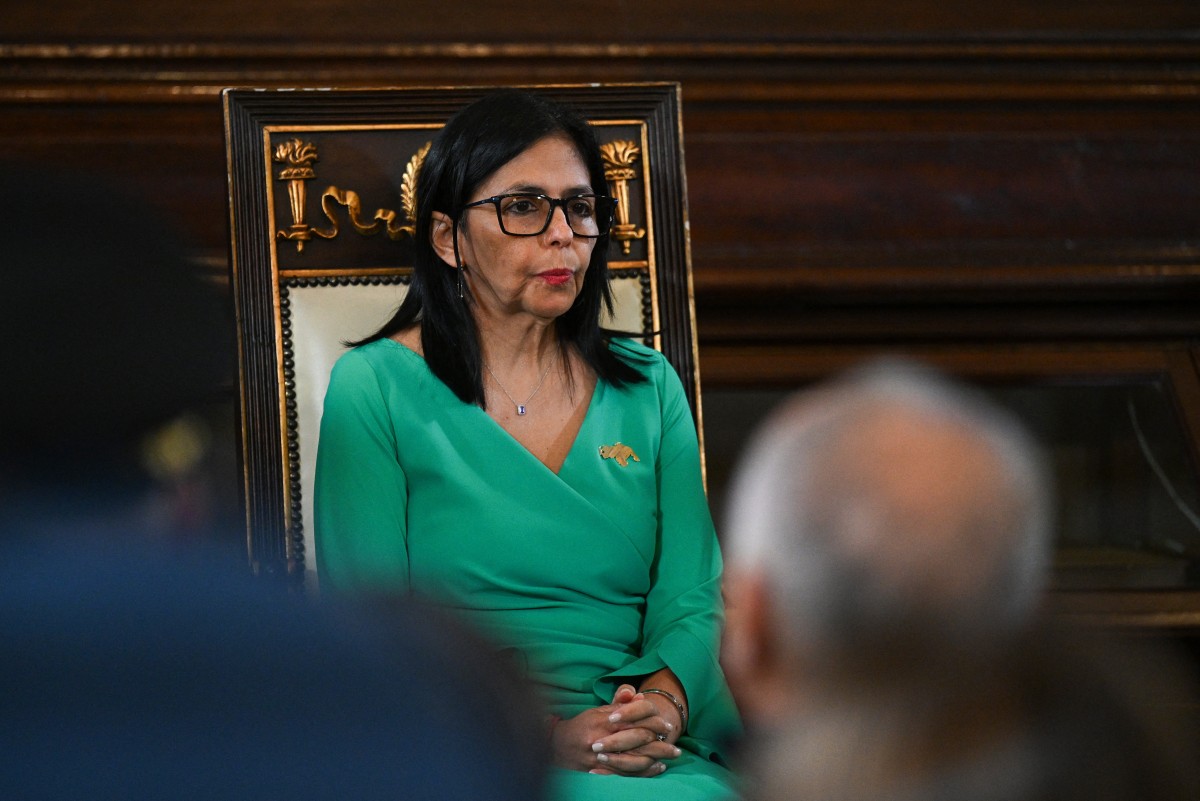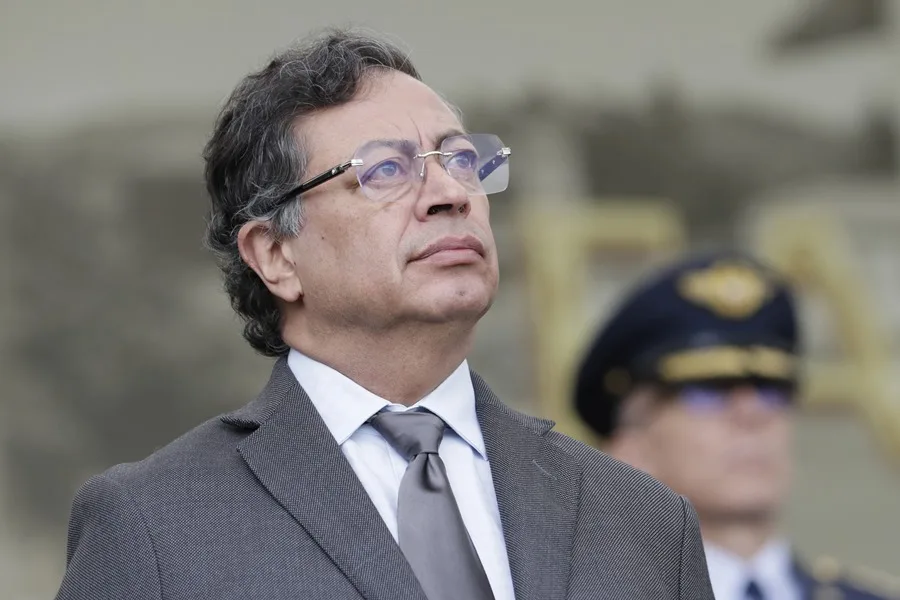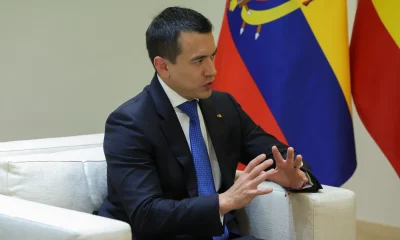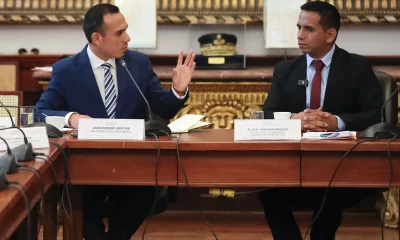International
‘Menstrual poverty’: Brazil tampon row gets political

AFP
Vanessa Moraes lives in a Rio de Janeiro slum, works multiple jobs to support her two sons and barely scrapes by on welfare.
So buying tampons and pads each month is hardly a top priority.
Like millions of women across Brazil, Moraes improvises with whatever she can when she gets her period — a long-taboo topic that took a political turn last month when President Jair Bolsonaro vetoed legislation to provide free menstrual supplies for the poor.
“Pads are expensive, so we use a piece of cloth, a pillowcase, a diaper, whatever we can,” says Moraes, whose sons are aged 11 and 12.
Her eldest, Hugo, has cerebral palsy, and has to wear diapers.
“Whenever one of my son’s diapers breaks, I think, ‘Oh, I’ll use that for a pad,’” Moraes tells AFP.
The tall 39-year-old demonstrates her technique, tearing the elastic strips off each side of a diaper, opening the absorbant middle and adding a piece of scrap cloth to make it more effective.
Moraes lives in Complexo do Alemao, a sprawling “favela” on Rio’s north side.
Much of her income from her jobs as a waitress and school-bus driver goes to caring for Hugo.
Even with the 1,100 reais ($200) she receives in government assistance each month, the family barely gets by, she says.
A pack of tampons or pads ranges in price from three to 10 reais in Brazil — a sum Moraes simply can’t afford.
Brazil, a country of 213 million people, has an estimated 60 million women and girls who get their period each month.
An estimated 28 percent of poor women suffer what is known as “menstrual poverty”, meaning they are unable to afford basic hygiene products.
Forced by necessity, they have found myriad solutions to deal with their periods: pieces of bread, cotton, paper or the “paninho” (little cloth), a piece of fabric that is washed and re-used.
But a lack of menstrual supplies keeps one in four girls home from school each month, according to a recent report by a United Nations Foundation program called Girl Up.
– ‘Matter of public health’ –
Moraes gets assistance from One by One, a local charity for impoverished disabled people and their families.
The organization provides equipment such as wheelchairs, as well as food and basic goods — including menstrual supplies.
Fifteen-year-old Karla Cristina de Almeida, another beneficiary, shares her monthly package with her sister — when they can.
“Sometimes we have one pack, sometimes we have none. When we don’t have any, I don’t even leave the house. So I miss school,” she says.
Women lined up at One by One’s recent handout of menstrual supplies.
One, Miriam Firmino, 51, remembered coming of age using a “paninho” — an experience she wants to spare her three daughters.
“To be able to afford tampons, we have to find them on sale. When we can’t, we get by however we can,” she says.
The problem has only grown worse with the coronavirus pandemic, whose economic fallout has hit hardest among the poor.
“With the pandemic and the economic crisis, a lot of the mothers we help tell us they’ve gone back to using ‘paninhos,’ paper, cotton or other materials when they menstruate,” says One by One president Teresa Stengel.
“They often complain of injuries and infections. Menstrual poverty is a public health problem.”
– Bolsonaro veto –
The issue became a topic of national conversation in October when Bolsonaro signed a bill into law promoting “menstrual health,” but used his line-item veto to block its promise of free menstrual supplies for more than five million low-income women and girls, arguing there was no funding for it.
The move has fueled scathing criticism of the far-right president, who has often been accused of misogyny and anti-women policies.
In response, Rio city hall and several other state and local governments have started giving out free tampons in public schools.
“My school has done more for Brazil than Bolsonaro. They gave out three packs of tampons to every girl,” quipped one Twitter user.
International
Federal immigration agents kill man in Minneapolis, sparking protests and outrage

Federal immigration agents shot and killed a 37-year-old Minneapolis man during an operation on Saturday, authorities confirmed, sparking new protests and deepening outrage over federal immigration enforcement in the city.
The victim, identified as Alex Jeffrey Pretti, was a U.S. citizen and intensive care nurse who worked at a Veterans Affairs hospital and was widely respected in his community, according to colleagues and news reports.
Officials said the shooting occurred during a targeted immigration raid in south Minneapolis. The Department of Homeland Security (DHS) described the incident as an act of self-defense by agents who believed the man posed a threat.
However, videos reviewed by multiple outlets and eyewitnesses show Pretti holding a phone and not displaying a weapon before being pepper-sprayed, tackled by agents and then shot multiple times, raising serious questions about the official account.
The killing comes amid a broader federal immigration enforcement operation in the city and follows another controversial shooting in early January in which Renée Good, a 37-year-old U.S. citizen, was fatally shot by an ICE agent, leading to widespread protests and criticism of federal tactics.
International
Delcy Rodríguez seeks political agreements after Maduro’s ouster

Venezuela’s interim president, Delcy Rodríguez, on Saturday called for “reaching agreements” with the opposition to achieve “peace” in the country, which the United States says it now controls following the military operation that removed President Nicolás Maduro from power.
Rodríguez, who previously served as Maduro’s vice president, assumed interim leadership after the leftist leader was captured on January 3 during a military incursion that left nearly 100 people dead.
In her first public statements since taking office, Rodríguez signaled a shift in the strained relationship between Caracas and Washington, while also committing to the release of a “significant number” of political prisoners.
“There can be no political or partisan differences when it comes to the peace of Venezuela,” Rodríguez said during an address in the coastal state of La Guaira, broadcast on state television VTV.
“From our differences, we must speak to one another with respect. From our differences, we must meet and reach agreements,” she added.
The day before, Rodríguez instructed the head of Parliament — her brother Jorge Rodríguez — to convene talks with various political sectors in the country aimed at achieving “concrete and immediate results.”
International
Bogotá and Quito Seek Dialogue After Tariffs and Power Cut Escalate Tensions

Bogotá and Quito will hold an emergency bilateral summit next week amid recent developments that have strained relations between the two countries.
Tensions escalated this week after Ecuadorian President Daniel Noboa unexpectedly announced a 30% tariff on Colombian imports. Colombia responded with a reciprocal measure, imposing the same tariff on around 20 Ecuadorian products and suspending electricity exports to Ecuador.
Aware that electricity imports are critical to easing Ecuador’s recent energy crises, Quito further imposed a 30% tariff on the transportation of Colombian oil through its territory.
However, recent statements from the Ecuadorian government suggest that dialogue between the two sides has intensified in recent hours. Ecuador’s Minister of Foreign Affairs, Gabriela Sommerfeld, confirmed that active conversations are under way.
In Colombia, segments of the business sector have welcomed the prospect of negotiations. The National Business Council (Consejo Gremial Nacional, CGN), for instance, urged both governments to restore commercial relations, warning that the dispute “puts jobs and regional economic stability at risk.”
-

 International4 days ago
International4 days agoMexican influencer “La Nicholette” kidnapped in exclusive area of Culiacán
-

 International4 days ago
International4 days agoTrump to invite Venezuela’s interim president Delcy Rodríguez to Washington
-

 Central America4 days ago
Central America4 days agoMazatenango Carnival cancelled amid State of Siege in Guatemala
-

 International4 days ago
International4 days agoMajor winter storm to blanket U.S. and Canada with snow, ice and arctic cold
-

 International4 days ago
International4 days agoMarkets rise as Trump halts Europe tariffs and floats Greenland agreement framework
-

 International4 days ago
International4 days agoColombia slams Ecuador’s 30% tariff as ‘economic aggression’
-

 International4 days ago
International4 days agoTrump announces preliminary NATO agreement on Greenland, suspends tariffs on Europe
-

 International4 days ago
International4 days agoVenezuela’s interim president predicts 37% increase in revenues for 2026
-

 Internacionales2 days ago
Internacionales2 days agoMajor winter storm threatens “catastrophic” ice and snow across much of the U.S.
-

 International2 days ago
International2 days agoTrump-Era Defense Plan Prioritizes Border Security and Scales Back Global Commitments
-

 International4 days ago
International4 days agoJapan reopens Kashiwazaki-Kariwa Plant despite public concerns
-

 International4 days ago
International4 days agoFour minors killed in deadly clash between FARC dissidents in Colombia’s Amazon
-

 International2 days ago
International2 days agoGuatemala considers sending high-risk gang members to military prisons
-

 Central America2 days ago
Central America2 days agoGuatemala’s president rules out negotiations with inmates after prison riots
-

 International2 days ago
International2 days agoBogotá and Quito Seek Dialogue After Tariffs and Power Cut Escalate Tensions
-

 International4 days ago
International4 days agoJosé Jerí claims destabilization attempt after videos of secretive meetings surface
-

 International19 hours ago
International19 hours agoDelcy Rodríguez seeks political agreements after Maduro’s ouster
-

 International2 days ago
International2 days agoRights group says over 5,000 killed in Iran protests, mostly civilians
-

 International19 hours ago
International19 hours agoFederal immigration agents kill man in Minneapolis, sparking protests and outrage


























